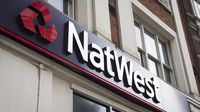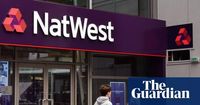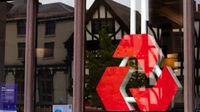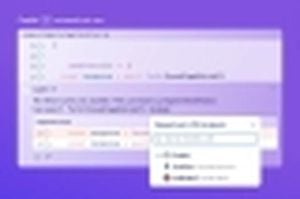NatWest Group has reported a significant increase in quarterly profits, marking a pivotal moment as the UK government edges towards fully divesting its stake in the bank, which has been under state control since the 2008 financial crisis. For the first quarter of 2025, NatWest announced a pre-tax profit of £1.8 billion, reflecting a 36% rise compared to the same period last year. This performance exceeded analysts' expectations, who had forecasted profits of £1.6 billion.
The bank's strong results, released on May 2, 2025, come just a day after the government revealed that its stake in NatWest had fallen to 1.98%, a significant drop from nearly 40% in December 2023. This reduction in government ownership signals a nearing conclusion to NatWest's long path back to full private ownership, following a £45.5 billion bailout during the financial crisis, which left taxpayers holding an 85% stake in the bank.
Chief Executive Paul Thwaite described the quarter as a time of "positive momentum" for NatWest, highlighting the resilience of customers amid global economic uncertainties. He stated, "Our strong first quarter performance demonstrates the positive momentum in our business as we deliver against clear strategic priorities." Thwaite also noted that the bank is now expecting to achieve the upper end of its previously announced targets for income and returns this year.
NatWest's total income for the quarter reached £3.95 billion, driven by increased lending and deposits. The bank's net interest margin (NIM) improved to 2.2%, up 8 basis points from the previous quarter, while net loans rose by 4.2% to £371.9 billion. This growth was partly fueled by a surge in mortgage applications as homebuyers rushed to finalize purchases before a hike in stamp duty, which took effect at the beginning of April.
Despite the encouraging figures, Thwaite acknowledged challenges posed by a more volatile global environment. NatWest took a £189 million credit impairment charge during the quarter, although it reported stable default levels across its portfolio. The bank's performance stands in contrast to some competitors, such as Lloyds and HSBC, which have recently flagged rising credit risks due to global trade uncertainties, particularly related to U.S. tariffs.
Thwaite reassured investors about the bank's credit quality, stating that only a small portion of their corporate credit exposure is directly impacted by U.S. tariffs. "Seventy percent of our corporate credit exposure is in the services sector and only a very small number are directly impacted by U.S. tariffs," he said. He added that while large corporates are cautious, NatWest has not seen any significant changes in consumer behavior among retail and small business clients.
The results have been positively received in the market, with NatWest shares rising by 2% to 486p on May 2, 2025, following the announcement. This marks a 59% increase in share value over the past year, reflecting investor confidence in the bank's recovery and future prospects.
As NatWest prepares to return to full private ownership for the first time in 17 years, it is also navigating the complexities of a changing economic landscape. The bank's focus on UK operations has helped insulate it from some of the international market volatility affecting its rivals. The government, which invested nearly £46 billion to rescue NatWest in 2008, is expected to recover only about £25 billion of that amount as shares are sold below the purchase price.
In April 2025, shareholders approved a controversial pay increase for Thwaite, allowing him to earn up to £7.7 million for a single year’s work, a decision that has drawn scrutiny amid the bank's recovery narrative.
Overall, NatWest's latest financial results serve as a testament to its recovery from the depths of the financial crisis, positioning the bank as a key player in the UK banking sector as it moves closer to complete privatization. The financial landscape continues to evolve, and while challenges remain, NatWest's strong performance bodes well for its future as a fully private entity.






